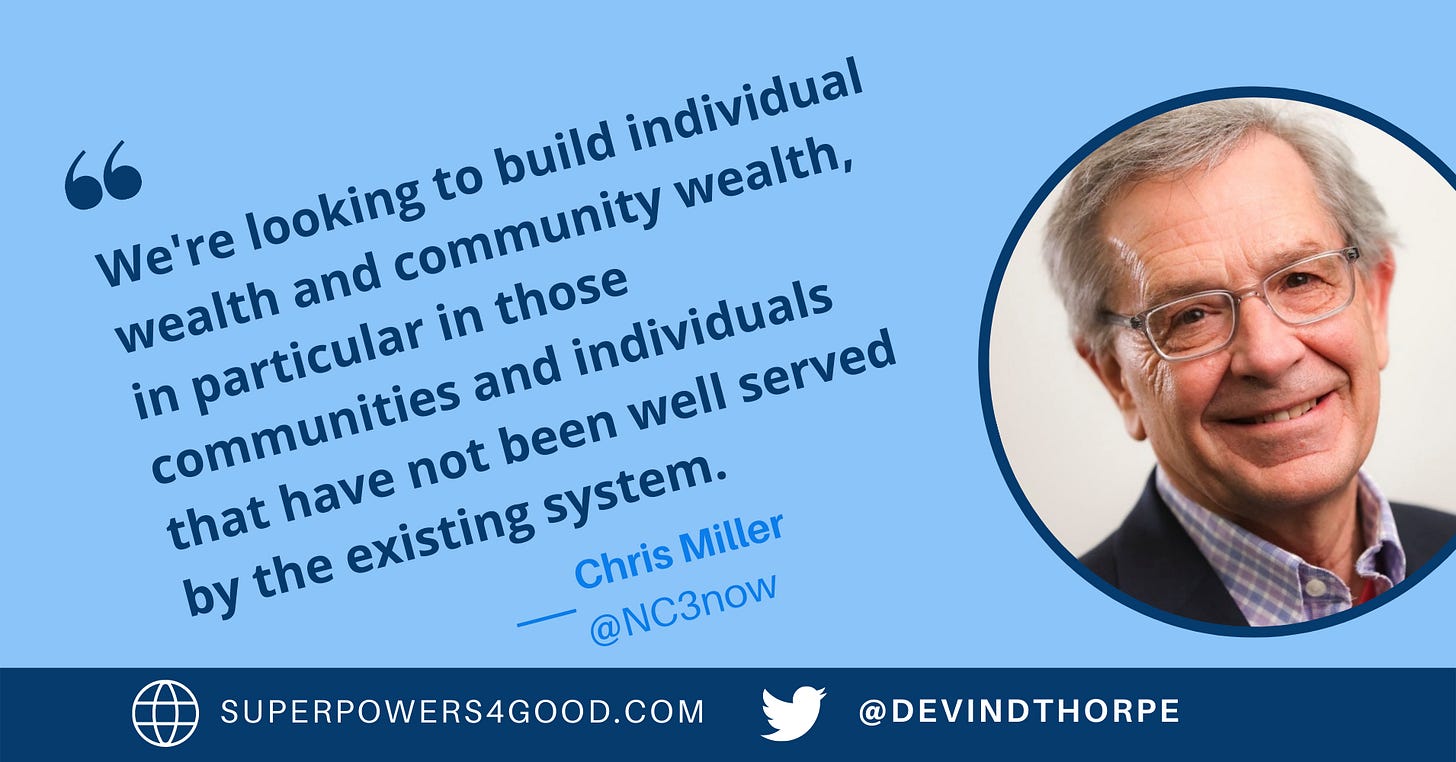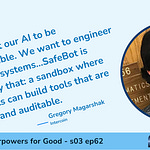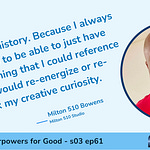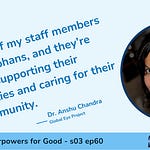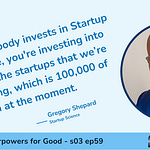Devin: What do you see as your superpower?
Chris: There are a couple of things, and I hesitate to label them superpowers because that doesn't feel right.
Chris: What I've recognized, and it's been by happenstance, [is] that for some reason people will listen when I say stuff, and if I say it well, they might think about doing it…
One of the things that I have, I think, has been helpful for me in this movement is I've been able to envision what this looks like when we have much more democratic economies and have much more equitable access to capital...
A fundamental desire to do things which benefit others, I think that's a piece of it.
Christopher D. Miller has spent decades focused on strengthening his community. Along the way, he identified a lack of workable capital structures as a difficult problem. Finding like-minded peers led him to create the nonprofit National Coalition for Community Capital (NC3).
A crowdfunding community leader, Chris will be speaking at SuperCrowd22, and NC3 is serving as a co-host for the event.
Chris recently took a new position at Plane Wave Instruments; he remains actively involved as a board member at NC3.
Founding NC3
Chris served as both an appointed and as an elected city official in his Michigan hometown of Adrian before becoming its economic development officer. He took that last position at the beginning of the Great Recession in 2008.
Chris shared the challenge involved in his new role—for which he acknowledges he had no formal training:
I had heard this steady drumbeat in conferences and workshops. Nobody is coming to rescue you. You're going to have to do this on your own. Even existing businesses in my community that had longstanding relationships with banks were having trouble, trouble accessing capital.
When the JOBS Act passed in 2012, he started reading up on it. He read Locavesting by Amy Cortese. Inspired by her book, he convinced her to visit Adrian to speak to a group of local business leaders.
Her message resonated and led to significant outcomes. First, a group of local leaders who had been talking about buying a struggling downtown building came together, raised money from two dozen investors and bought it. “It immediately started cash flowing,” Chris says.
Having saved the building from foreclosure and the tenants from eviction, they raised more money to improve it further, first upgrading the facade and then adding apartments.
Then, they bought a second building, followed by a third, repeating the process in each case. The result was “a huge impact in downtown,” Chris says.
The second thing that came from Amy’s presentation was to grow Chris’s network in the investment crowdfunding community. While the JOBS Act was law, The SEC had not implemented it. Georgia began work on a state law to allow a more straightforward process for investment crowdfunding.
After connecting with the leaders in Georgia, Chris began advocating for a similar law in Michigan, which he quickly got passed—even before the Georgia bill became law. Dozens of states now have similar laws.
As Chris’s network grew, he continued finding people from communities like Adrian around the country with similar challenges around capital formation. In 2016, after connecting with a group of peers at a conference in Oregon, he led the formation of NC3.
Chris shared his vision for NC3:
We want to be a big tent organization. You know, there's a lot of folks from a lot of different philosophical perspectives that are interested in the movement. It gained a lot of traction in COVID because the long-standing hurts that have been done to a lot of communities became painfully clear to a lot more folks, and the income disparity became painfully clear to a lot more folks. The real inefficiencies in that system became clear to folks. So, we've tried to partner very broadly, both with traditional sources of capital and with friends on the other side that want to get rid of capital altogether. It's a really interesting mix.
“We're looking to build individual wealth and community wealth, in particular in those communities and individuals that have not been well served by the existing system,” Chris says of NC3’s mission.
The Power and Impact of Investment Crowdfunding
Now a decade into the community capital movement, Chris is familiar with countless examples of companies raising money with significant impact on their communities. He shared a few examples with me.
Chris connected with some entrepreneurs in the nearby town of Tecumseh who were looking to launch a micro-brewery. He explained the new state law about crowdfunding and suggested they could be the first to raise money under the new rules. That’s what happened.
The group raised $175,000 from 23 investors, most from within the small community. That enabled them to purchase a building adjacent to the one they already owned.
They used a “revenue share” model for the deal, promising a 10 percent annual return with the money to be repaid over five years. The company repaid the debt in just three and a half years.
The success allowed them to go back to their investor group and raise more money for further expansion. When COVID struck, they went back again to raise $90,000 for a food truck. It has become a “significant employer” in downtown Tecumseh, Chris says.
Chris also highlighted the story of a semi-pro soccer team called the Detroit City Football Club. They found a field owned by a school district that had been unused. They raised $775,000 from people around the state. “They launched the football club, and it's been gangbusters since then,” he says.
A little closer to home, Chris notes that his wife, a lifelong educator, retired from the university to open a downtown cafe and candy shop. They raised $120,000 from 47 investors from seven states. The business is thriving 18 months after its launch in downtown Adrian.
Chris, NC3 and SuperCrowd22
As the organizer of SuperCrowd22, I am thrilled to have Chris on the program for the event and am extremely grateful to have NC3 as a co-host.
Chris says, “It feels a lot to us like you're throwing a really cool party, and you've invited us to it.”
A loose network of people from around the country, led by Chris, formed NC3; Chris knows well the power of networking. He says, “We're grateful for the opportunity and the connections” that SuperCrowd22 can provide. “So much of what we're all doing in this space is finding strategically aligned and mission-aligned partners who want to do it.”
Because NC3 is a co-host for the event, NC3 members will receive a special low price for admission. Members are encouraged to reach out to NC3 for those details.
Chris will be delivering a keynote address during the opening session of SuperCrowd22 on Thursday, September 15 at 11:00 AM Eastern. The title of his speech is “How to Save The World Using Community Capital.”
Remember, Superpowers for Good free subscribers get 50 percent off the $199 conference ticket price here. Paid subscribers may attend for free! Subscribe today for just $5.95 per month.
Chris has developed two superpowers, communication and vision, that he has used in his work.
How to Develop Communication and Vision As Superpowers
As Chris thinks about his superpower, his mind goes first to its foundation. As a child, when he went out door-to-door on Halloween for treats, his parents taught him to also take a milk carton to collect pennies for UNICEF. Fundamentally, Chris desires to help other people.
For him, that desire is a vital part of developing his superpowers of communication and vision. When people hear him speak, they feel his passion for service.
Developing the ability to envision something that isn’t there is more challenging, so we dug a bit deeper into that.
He credits his reading of fiction, especially science fiction, for helping him acquire the ability to imagine solutions that don’t yet exist. That helped him form a habit of getting into a creative frame of mind.
Chris confessed to something of a pet peeve. “Let's not reinvent the wheel.” That phrase is one he frequently rails against.
“I have heard that thousands of times, and during the recession, I heard it 1,000 times, and I said, “No, if the people that had sledges said, ‘Let's not reinvent the sledge,’ we wouldn't have the wheel,” he says. “So, we definitely need to say, ‘Let's reinvent the wheel.’”
Wisely, Chris adds that one failure doesn’t prove much. “We tried it once when it didn't work. Does that mean it's a bad idea?” No, he says. It could have been poorly executed or might have been bad timing. Creativity needs time, space and patience.
As an aside, Chris offered some counsel he often shares with young people. “Find something you love right now. You've got incredible opportunities. You know, 100 years ago, you had six jobs you could have picked from. Now, you can do anything in the world.”
By following Chris’s example and his advice, you can make communication and vision superpowers that will enable you to do more good.





